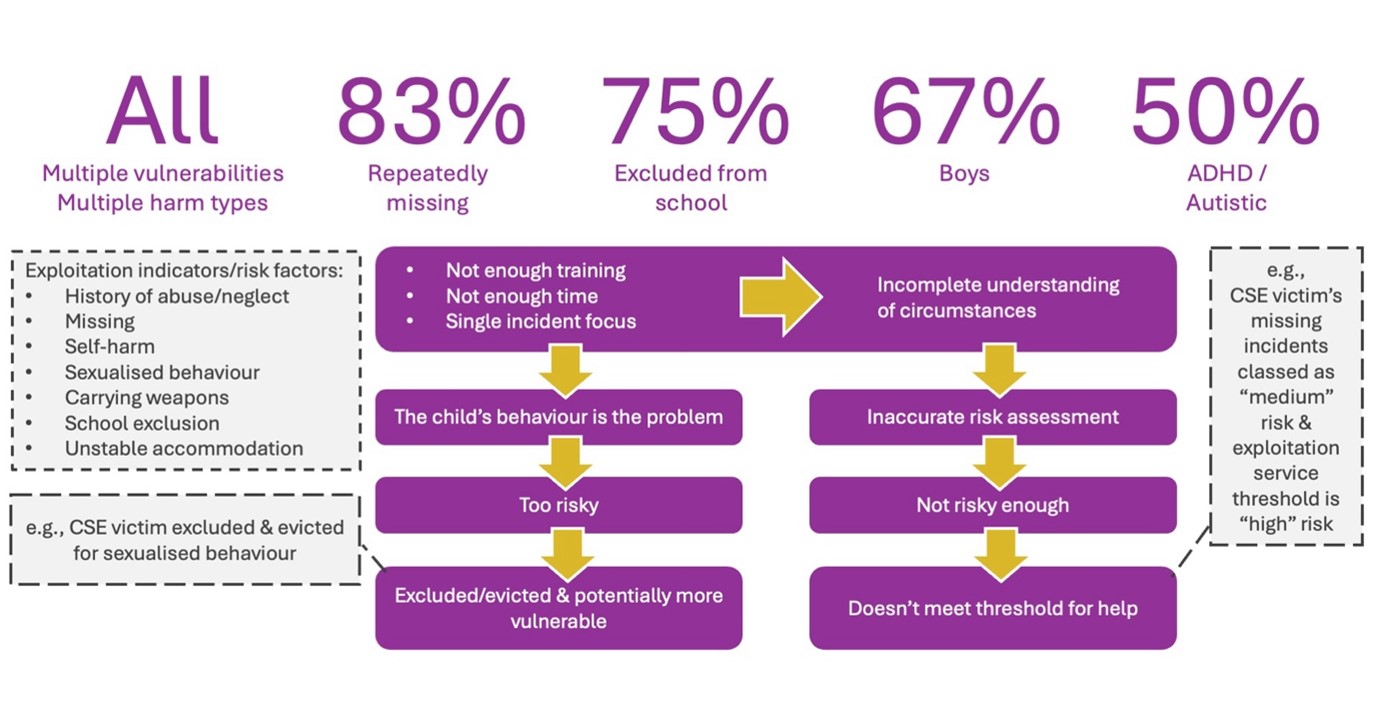
“Too risky yet not risky enough” – New research on seriously harmed missing children
A new study highlights the risks of incident-centered policing for missing children.
The study, led by Nicola Fox (University of Manchester), explores the circumstances surrounding seriously harmed missing children in England, and suggests how child-centered policing responses could help. An in-depth analysis of the key findings was recently published as an Open Access article in Policing and Society.
Missing Children & Harm
Police forces in England receive so many calls reporting children missing that they can’t investigate every incident to the same extent, making it vital for those most at risk of harm to be identified. The problem is that we don’t know much about the circumstances associated with children who go missing who have experienced, or go on to experience, serious harm. One reason for this is that police data on missing children only contains information about harm that happened during the missing incident, and only if the child told the police about the harm or it was visible to police. This is likely to be only a small proportion of the harm associated with children who go missing.
The Study
To address this gap, we looked for data on children known to have experienced serious harm to identify children who had also been missing, to identify common characteristics and circumstances, and related opportunities and issues with safeguarding those children. We analysed a sample of 39 child safeguarding practice reviews (CSPRs) that were conducted in England and published in 2021 and the first half of 2022 in the NSPCC national case review repository.
Findings
Being repeatedly missing, exploitation, school exclusion, multiple harm types, and multiple vulnerabilities were mentioned in most of the cases that mentioned the harmed child going missing from home or care. When they behaved in a way that can be indicative of exploitation (e.g., sexualised behaviour) they were sometimes excluded from school and/or evicted from their care home (due to being seen as too risky to themselves, other children, or guardians such as carers and school staff), potentially further increasing their risk of exploitation. This was commonly due to guardians being insufficiently trained or lacking sufficient time to make use of all available information about the child’s circumstances, or due to a single incident focus.
A single incident focus could also lead to a CSE victim not receiving help with exploitation due to their missing incident being categorised as “medium” risk by police and an exploitation service only accepting children with a “high” risk missing incident.

The findings suggest that a child-centred (rather than incident-centred) approach is needed to protect missing children from serious harm, which considers the fact that practitioners often don’t have enough expertise or time and may not be willing/able to look after exploited children.
Given the prevalence of school exclusions in the MFHC cases, and the fact that children could be excluded for behaviour indicative of exploitation/abuse, schools could play a role in helping to risk assess missing incidents and safeguard exploited children.
For example, the Philomena Protocol, where police work with guardians to gather information that could help police with risk assessing and locating children at risk of going missing (only currently in place for children in care), could be extended to schools for children at risk of exclusion.
Further information
Fox, N,. Miles, C., Solymosi, R., Kim, E. & Batista-Navarro, R. (2024). Too risky yet not risky enough: The intersecting characteristics, vulnerabilities, harm indicators and guardianship issues associated with seriously harmed missing children. Policing & Society.
The Missing Persons Information Hub – A single point of reference where links and information can be found concerning all aspects of missing persons – data, research, organisations, and guidance. It is aimed at everyone who may be involved or needs help, including persons who are missing, those connected to them, professionals, and academics.
About the Author
Nicola Fox is a PhD student in Criminology at the University of Manchester researching harm associated with missing children. Nicola is co-creator of the Missing Persons Information Hub. If you have any questions about the study please contact Nicola at nicola.fox-2@postgrad.manchester.ac.uk.









0 Comments